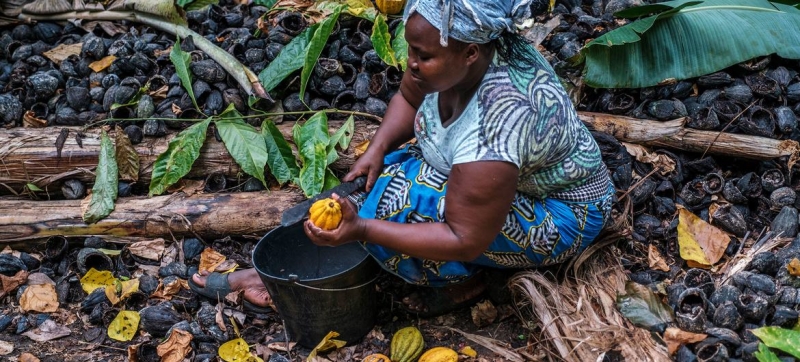
A woman in Sao Tome extracts cocoa beans from the fruit of the cocoa tree. Some of them will be processed for export. $31 trillion debt is holding back growth in developing countries, UN trade summit says Economic Development
Maintaining a functioning international trading system remains a key challenge if the world is to avoid a devastating tariff war, Secretary-General Rebekah Greenspan told the United Nations Conference on Trade and Development (UNCTAD) on Monday.
Speaking to 195 UNCTAD member states in Geneva, she stressed that 72 percent of global trade still takes place under World Trade Organization (WTO) rules.
“We have so far avoided the chain reaction of tariff escalation that once brought the world economy to its knees in the 1930s,” Greenspan said. “And this did not happen by chance, but because of you – because you continued to negotiate even when it seemed pointless… and built bridges even when they were collapsing.” ongoing global economic uncertainty and new announcements of tariffs on US trading partners.
Rising tariffs, record debt payments and growing distrust among countries are holding back development.
“The debt and development crises continue to present countries with impossible choices,” she said. Countries must decide whether to stop paying their debts or undermine their own development.
Tariffs and uncertainty
Earlier, at the UN General Assembly, Greenspan reported that the average level of tariffs imposed major economies, including the United States, rose this year from 2.8 percent to more than 20 percent.
“Uncertainty is the highest possible tariff rate,” she emphasized. “It discourages investors, slows growth and makes trade as a path to development much more difficult.” warned that developing countries’ debt reached $31 trillion last year.
“Instead of investing in the future of their people—building schools or developing health systems—many governments are forced to spend precious resources on servicing debt,” she said.
Berbock also noted that trust in the international system is eroding. Despite the global economy being valued at more than $100 trillion a year, “half the world’s population has seen almost no growth in their incomes,” she added. warned that global investment flows have fallen for the second year in a row. However, the current investment system, she said, still favors projects in developed countries over developing ones: “as a result, one dollar costs Zambia three times more than Zurich.” Greenspan added that the cost of freight transportation has become too volatile, and that for landlocked countries and small island states’ transport costs are three times higher than the global average.
While artificial intelligence has the potential to add trillions of dollars to global GDP, less than one-third of developing countries have strategies to benefit from it, she noted. According to the UN, 2.6 billion people still lack internet access, most of them women in developing countries.
Read also:
